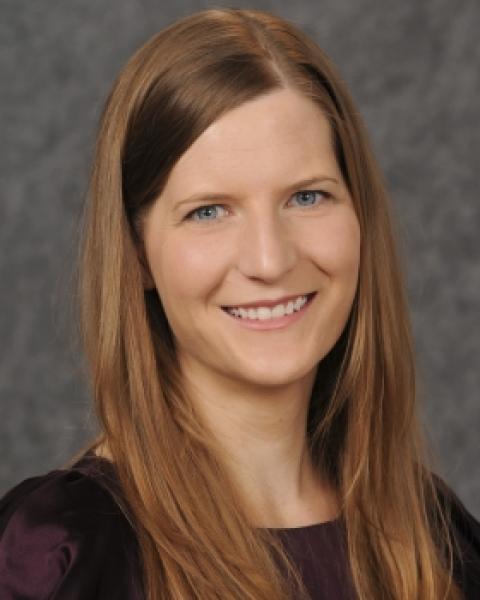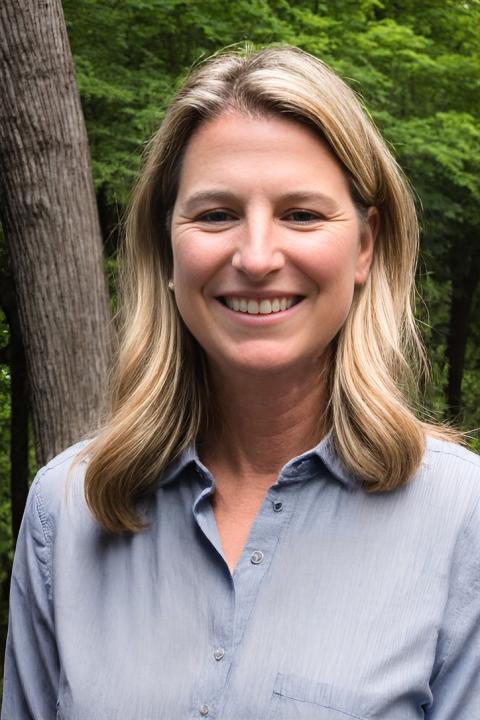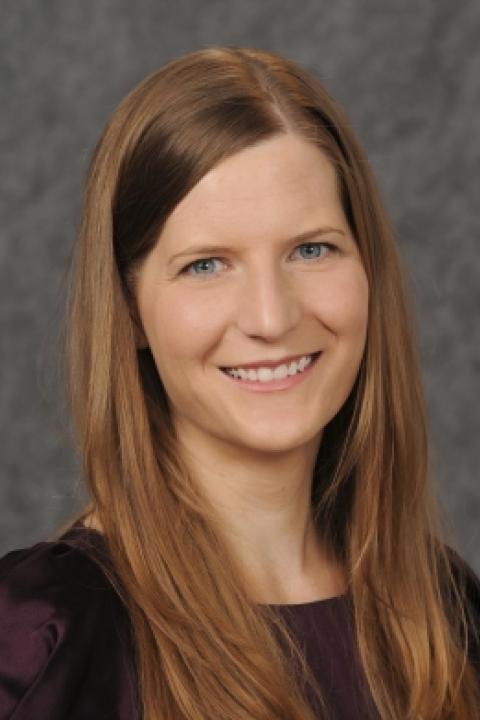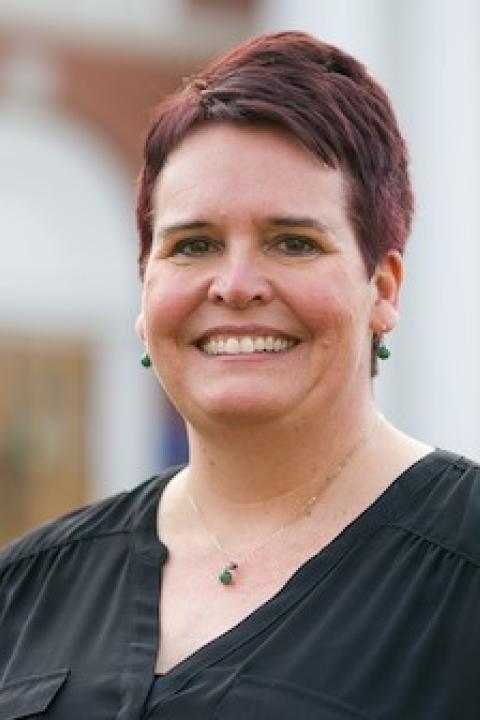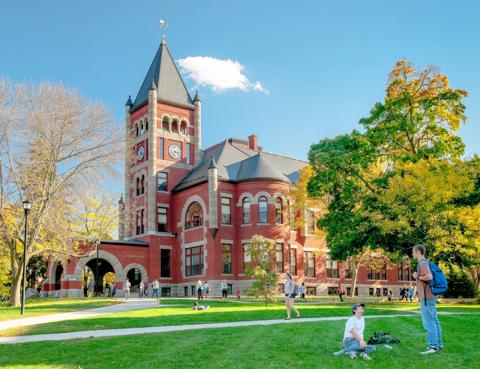WHAT IS HUMAN DEVELOPMENT AND FAMILY STUDIES?
Human development and family studies is an applied, interdisciplinary field that draws from disciplines ranging from developmental psychology, education and sociology to examine how individuals and families develop across the lifespan and the role of key contexts in their growth and development. Students pursuing this program are prepared through coursework and real-world laboratory, practicum and internship experiences to work in direct-service positions promoting developmentally appropriate and evidence-based best practices. The Early Childhood Education option offers teacher licensure preparation and prepares students for careers in K-12 schools.
WHY STUDY HUMAN DEVELOPMENT AND FAMILY STUDIES AT UNH?
Students in the human development and family studies program at UNH receive high-quality undergraduate instruction and advising. As a major public research university, UNH emphasizes hands-on experience and research opportunities. Students have multiple opportunities to put theory into practice through the Child Study and Development Center and community-based settings that serve individuals and families.
POTENTIAL CAREER AREAS
- Child and family support organizations
- Courts and corrections systems
- Development or support organizations for children, youth or seniors
- Family or workplace education programs
- Government agencies–administrative or human services
- Policy analysis, advocacy or research
- Schools (K-12, early childhood)
- Youth development programs
From the CHHS Blog
Curriculum & Requirements
Human Development and Family Studies (HDFS) is an academic discipline focused on understanding the development of individuals and families over time and across the ecological contexts in which they live. The Early Childhood Education (ECE) Teacher Licensure option within the major provides an applied focus on preparing students for careers as early childhood (birth - third grade) educators in childcare centers, preschools, and elementary schools. The ECE Teacher Licensure curriculum offers students the opportunity to take courses on infant and child development, working with children with special needs, teaching and learning in early care and education settings, observation and assessment of children, and building strong family-school-community partnerships. Additionally, students take subject-area coursework focused on developing the skills needed to teach math, science, social studies, and literacy. The principles of equity, diversity, and inclusion are woven throughout every course and internship experience to prepare students for inclusive educational practice.
As a major public research university, UNH emphasizes hands-on experience and research opportunities for undergraduate students. Students within the HDFS Early Childhood Education Teacher Licensure option are provided with opportunities to put theory and research into practice through practicum and internship coursework at the Child Study and Development Center and a required full-year student teaching internship in a Kindergarten through 3rd-grade classroom.
Sample Degree Plan
This sample degree plan serves as a general guide; students collaborate with their academic advisor to develop a personalized degree plan to meet their academic goals and program requirements.
| First Year | ||
|---|---|---|
| Fall | Credits | |
| ENGL 401 | First-Year Writing | 4 |
| HDFS 525 or HDFS 545 | Human Development 1 or Intimate Relationships and Families | 4 |
| Discovery Course | 4 | |
| Discovery Course | 4 | |
| CHHS First Year Seminar | 1 | |
| Credits | 17 | |
| Spring | ||
| HDFS 525 or HDFS 545 | Human Development 1 or Intimate Relationships and Families | 4 |
| HDFS 555 | Research Methods in HDFS | 4 |
| Discovery Course | 4 | |
| Inquiry Course | 4 | |
| CHHS First Year Seminar | 1 | |
| Credits | 17 | |
| Second Year | ||
| Fall | ||
| HDFS 623 | Infant and Child Development | 4 |
| EDUC 500 | Exploring Teaching (or Discovery Course) 1 | 4 |
| Discovery Course | 4 | |
| Course selected in consultation with advisor 2 | 4 | |
| Credits | 16 | |
| Spring | ||
| HDFS 635 | Teaching and Learning in Early Childhood Settings | 4 |
| MATH 601 | Exploring Mathematics for Teachers I | 4 |
| EDUC 500 | Exploring Teaching (or Discovery Course) | 4 |
| HDFS 684 | Curriculum for Young Children (or Discovery Course) | 4 |
| Credits | 16 | |
| Third Year | ||
| Fall | ||
| HDFS 709 or HDFS 771 | Child Development Internship (or Discovery Course) 1 or Observation and Assessment of Young Children | 4 |
| HDFS 684 | Curriculum for Young Children (or Discovery Course) | 4 |
| Major/Option Course (MATH/EDUC) | 4 | |
| Major/Option Course (MATH/EDUC) | 4 | |
| Credits | 16 | |
| Spring | ||
| HDFS 771 or HDFS 709 | Observation and Assessment of Young Children 1 or Child Development Internship | 4 |
| Discovery Course | 4 | |
| Discovery Course | 4 | |
| Course selected in consultation with advisor 2 | 4 | |
| Credits | 16 | |
| Fourth Year | ||
| Fall | ||
| HDFS 743 | Families, Schools, and Community (Capstone) | 4 |
| HDFS 785 | Seminar for Student Teachers I | 2 |
| Major/Option Course (MATH/EDUC) | 4 | |
| Major/Option Course (MATH/EDUC) | 4 | |
| Course selected in consultation with advisor 2 | 4 | |
| Credits | 18 | |
| Spring | ||
| HDFS 786 | Seminar for Student Teachers II | 2 |
| HDFS 788 | Student Teaching Young Children | 8 |
| Major/Option Course (MATH/EDUC) | 4 | |
| Credits | 14 | |
| Total Credits | 130 | |
- 1
Students should enroll in each listed course only once.
- 2
Students may use these credit hours towards a minor, accelerated master's program (senior year if applicable), or as general elective coursework.
Degree Requirements
All Major, Option and Elective Requirements as indicated.
*Major GPA requirements as indicated.
Major Requirements
The core curriculum required of each Human Development and Family Studies student is designed to give a broad introduction to individual and family development and interpersonal relationships across the lifespan. Building off this curriculum, each student can specialize in one of three options, Child Development, Early Childhood Education Teacher Licensure, or Family and Lifespan Development which guide further required coursework. Faculty advisors support students in selecting coursework to best prepare them for their specific career objectives. In their senior year, students complete a capstone course and may participate in a year-long community-based internship experience.
Candidates for the Human Development and Family Studies degree must satisfy all of the University Discovery and Writing Program requirements in addition to satisfying the requirements of the major/option.
| Code | Title | Credits |
|---|---|---|
| Core Requirements | ||
| HDFS 525 | Human Development | 4 |
| HDFS 545 | Intimate Relationships and Families | 4 |
| HDFS 555 | Research Methods in HDFS | 4 |
| Early Childhood Education: Teacher Licensure Option Requirements 1 | ||
| HDFS 623 | Infant and Child Development | 4 |
| HDFS 635 | Teaching and Learning in Early Childhood Settings | 4 |
| HDFS 684 | Curriculum for Young Children | 4 |
| HDFS 709 | Child Development Internship | 4 |
| HDFS 771 | Observation and Assessment of Young Children | 4 |
| HDFS 785 | Seminar for Student Teachers I | 2 |
| HDFS 786 | Seminar for Student Teachers II | 2 |
| HDFS 788 | Student Teaching Young Children | 8 |
| EDUC 500 | Exploring Teaching | 4 |
| EDUC 706 | Teaching & Learning Literacy in the Elementary Classroom | 4 |
| EDUC 751A | Inclusive Elementary Education: Literacies and Learning for Diverse Learners | 4 |
| or EDUC 760 | Introduction to Young Children with Special Needs | |
| EDUC 703F | Teaching Elementary School Science | 4 |
| EDUC 703M | Teaching Elementary Social Studies | 4 |
| MATH 601 | Exploring Mathematics for Teachers I | 4 |
| MATH 703 | Teaching of Mathematics in Grades K-6 | 4 |
| Capstone | ||
| HDFS 743 | Families, Schools, and Community | 4 |
- 1
All students in the Early Childhood Education Teacher Licensure option must meet state student-teaching requirements (basic academic skills assessment and criminal background check) and minimum 3.2 overall and major GPA and course progression requirements (B- or better in all option courses) confirmed through application during the spring of their junior year. Students who do not meet requirements will be transitioned to the Child Development option. Graduates of the Early Childhood Education Teacher Licensure will be eligible for recommendation to the NH Department of Education for Early Childhood Education (N-3) certification. Certification by the NH Department of Education also depends on meeting state subject area testing requirements and criminal background check.
Program Learning Outcomes
- Use theoretical frameworks and empirical research to understand and explain child/lifespan development, family process and the interaction of individuals and families with society.
- Recognize and respect a diversity of family forms and processes. Understand how human development and family interactions are shaped by diverse personal contexts and cultures. Understand and be aware of one’s own biases, beliefs, and values.
- Understand ethical decision-making processes, and ethical standards and principles relevant to our discipline. Positively represent the profession in academic, professional and community settings.
Professional Licensure/Certification Disclosures
The University of New Hampshire offers a number of academic programs designed to lead to professional licensure or certification in New Hampshire. However, completing a UNH degree/program does not guarantee professional licensure or certification. Eligibility may also depend on factors like years of work experience, professional examinations, passing a background check, and other criteria.
UNH does not guarantee that its professional licensure programs will satisfy the criteria of professional licensure boards in other states. Some states maintain different requirements for professional licensure or certification and requirements can change frequently. Federal regulations require the University to make public disclosure of certain information regarding professional licensure or certification programs, regardless of the modality the program is offered (i.e., in-person or online). The University provides guidance below but recommends students contact their state/territory licensing or certification board to ensure a program meets specific state/territory requirements.
Visit the Office of the Registrar's website for information about whether this program meets professional licensure requirements in your state.
Explore Program Details
Honors in Major for the HDFS Department offers students the opportunity to undertake an in-depth study of issues related to the health and well-being of individuals and families. The program emphasizes student-led, individualized curricula and encourages the formation of working relationships between students and faculty.
Honor in Major can be pursued without participating in the Hamel Honors and Scholars College or completing Discovery Honors requirements. To learn more University Honors, visit the Hamel Honors and Scholars College . Students, however, must still complete all HDFS requirements for their concentration.
Student’s interested in pursuing Honor in Major need to schedule a meeting with the Hamel Honors and Scholars College Liaison, Dr. Kimberly Nesbitt. While applications must be submitted before the end of Spring semester of the Junior year, students are encouraged to apply early to allow maximum flexibility in completing program requirements.
GPA Requirements for Honors in Major
Honors in Major for HDFS is open all undergraduates in all department concentrations; however, students are required to maintain an overall grade-point average of 3.40 and a 3.40 grade-point average in the major.
Honors in Major Courses
Students must successfully complete sixteen (16) credits of honors in HDFS at the 600 level or above. Of those sixteen credits, only one course may be chosen from the 600 level, while three must be chosen from the 700 level. The 700-level coursework must include 4 credits (across two semesters) of HDFS 799 – Honors Senior Thesis. HDFS honors courses require independent work, readings, and meetings with the course instructor not required of other students enrolled in the course.
Honors Thesis
Students must successfully complete four credits of HDFS 799 – Honors Senior Thesis. HDFS 799 is a two-credit course that is taken pass/fail over both semesters of the student’s senior year. As part of the thesis process, honors candidates must present a proposal to their faculty advisors that includes active student participation in original research. Once their research is completed, honors students must present their findings at a seminar (typically the UNH Undergraduate Research Conference ) and submit a written thesis to their faculty advisor.
Learn more about Honors in Major:
Honors in Major Guidelines and Thesis Requirements
Honors in Major Course Designation Form
Departmental Research Interest
Contact Information
For more information, contact:
Dr. Kimberly Nesbitt
Honors Program Liaison
Phone: (603) 862-2159
Email: kimberly.nesbitt@unh.edu
Students interested in our Human Development and Family Studies major may also be interested in these advanced degree offerings:
Visit our website to see whether our program meets your professional licensure requirements.

